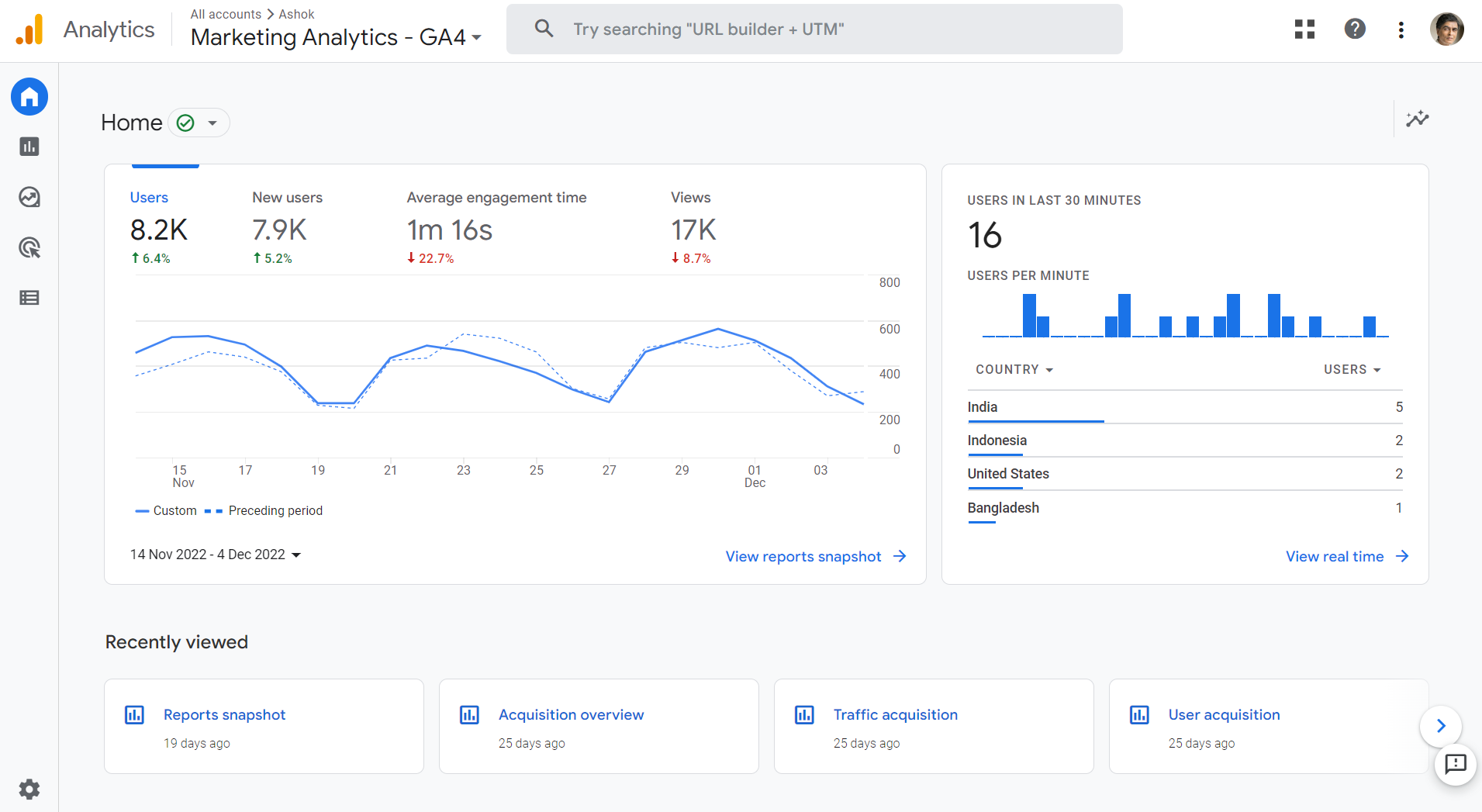
Exhibit 28.1 Google Analytics (GA4).
Web analytics is a key component of digital marketing
and website optimization. It involves the analysis of internet users’ behaviour and serves
these important objectives:
- Monitor the health of a website. This involves tracking and measuring web
traffic to assess performance against benchmarks and metrics.
- Improve the effectiveness of a website in terms of conversion rates and
other performance parameters through controlled website tests.
- Improve the effectiveness of elements of the marketing mix. For example,
digital marketing campaigns.
Web analytics tools use information from logs, cookies, and page tagging
processes to segment site visitors and track their progress through the prospecting funnel, from
leads to enquiries, enquiries to prospects, and prospects to customers. They track conversion
rates at each stage of the funnel to identify areas for improvement.
Google Analytics, Exhibit 28.1, is the most widely used web analytics
Google Analytics, Exhibit
28.1, is the most widely used web analytics platform, but there are other popular tools, including
Adobe Analytics,
Mixpanel,
Matomo,
Glassbox,
StatCounter,
Kissmetrics Analyze, and
IBM Watson Consumer Experience Analytics.
Web analytics is an ongoing cycle of improvement that comprises the following steps:
- Data Collection — via Server (Web) Logs, Page Tagging, Authentication
Systems and other methods.
- Data Processing — to compute Metrics.
- Reporting — Analysis and Visualization of the results.
- Benchmarking and Competitive Intelligence — data is compared against
industry standards and competitors.
- Optimizing — to make improvements to the website and marketing campaigns.
This chapter provides a detailed overview of each of these steps and how they
contribute to the overall web analytics process. By understanding the web analytics process and the
application of web analytics, businesses can make data-driven decisions to improve their website’s
performance and achieve their marketing objectives.